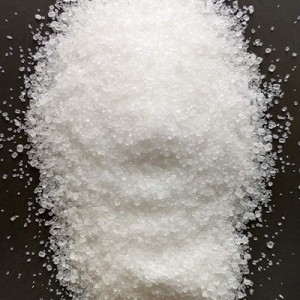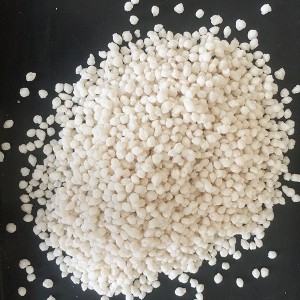The benefits of monoammonium phosphate to agriculture
1. Monoammonium phosphate is known for its free flow and high solubility in water, making it ideal for a variety of agricultural applications.
2. MAP has a relative density of 2.338 g/cm3 and a melting point of 252.6°C. It is not only stable but also easy to handle.
3. The pH of the 1% solution is approximately 4.5, indicating that it is suitable for use in a variety of soil types and improves nutrient use efficiency for crops.
| Specifications | National Standard | Agriculture | Industry |
| Assay % ≥ | 99 | 99.0 Min | 99.2 |
| Phosphorus pentoxide % ≥ | / | 52 | 52 |
| Potassium oxide (K2O) % ≥ | 34 | 34 | 34 |
| PH value (30g/L solution) | 4.3-4.7 | 4.3-4.7 | 4.3-4.7 |
| Moisture % ≤ | 0.5 | 0.2 | 0.1 |
| Sulfates(SO4) % ≤ | / | / | 0.005 |
| Heavy metal, as Pb % ≤ | 0.005 | 0.005 Max | 0.003 |
| Arsenic, as As % ≤ | 0.005 | 0.005 Max | 0.003 |
| Fluoride as F % ≤ | / | / | 0.005 |
| Water insoluble % ≤ | 0.1 | 0.1 Max | 0.008 |
| Pb % ≤ | / | / | 0.0004 |
| Fe % ≤ | 0.003 | 0.003 Max | 0.001 |
| Cl % ≤ | 0.05 | 0.05 Max | 0.001 |
Unlock your full agricultural potential with our high-quality monoammonium phosphate (MAP). As a high-efficiency potassium-phosphorus compound fertilizer, our monoammonium phosphate has a total element content of up to 86% and is an important raw material for the production of nitrogen-phosphorus-potassium compound fertilizer. This powerful formula not only improves soil fertility but also promotes vigorous plant growth, ensuring your crops thrive in any environment.
The benefits of monoammonium phosphate to agriculture are manifold. It provides an easily available source of phosphorus, which is essential for root development, flowering and fruiting. Additionally, the potassium content supports overall plant health and increases resistance to disease and environmental stress. By incorporating our MAP into your fertilization strategy, you can expect increased crop yields and improved quality, ultimately leading to greater profitability.
In addition to agricultural applications, our MAP is also used in the fire protection material production industry, demonstrating its versatility and value in various fields.
Packing :25 kgs bag,1000 kgs,1100 kgs, 1200 kgs jumbo bag
Loading:25 kgs on pallet: 25 MT/20’FCL; Un-palletized:27MT/20’FCL
Jumbo bag :20 bags /20’FCL ;





1. NUTRIENT-RICH INGREDIENTS: MAP is a source of nitrogen and phosphorus, two essential nutrients that promote healthy plant growth. This dual supply of nutrients aids root development and enhances flowering and fruiting.
2. Improve soil health: Using MAP can improve soil structure and fertility. Its acidic nature can help break down alkaline soil, making it easier for plants to absorb nutrients.
3. Increased Crop Yields: By providing essential nutrients in an easily accessible form, MAP can significantly increase crop yields, ensuring farmers get a better return on their investment.
1. Nutritious: MAP provides essential nutrients, especially phosphorus and nitrogen, which are critical for root development and overall plant health. This makes it an excellent choice for crops that require a quick nutritional supplement.
2. Solubility: It has high solubility in water and is easy to use, ensuring that plants can effectively absorb nutrients. This property is especially beneficial in areas with poor soil quality.
3. Increased Yield: Using MAP can increase crop yields and is a valuable investment for farmers seeking to maximize yields.
1. Acidity: Over time, the pH of MAP can cause soil acidification, which can negatively impact soil health and microbial activity.
2. Cost: While monoammonium monophosphate is effective, it can be more expensive than other fertilizers, which may deter some farmers from using it.
3. Environmental Issues: Excessive application can cause nutrient loss, cause water pollution, and damage aquatic ecosystems.
Q1: How should MAP be applied?
A: MAP can be applied directly to the soil or used in a fertigation system, depending on the crop and soil conditions.
Q2: Is MAP safe for the environment?
A: When used responsibly, MAP poses minimal environmental risks and contributes to sustainable agricultural practices.







